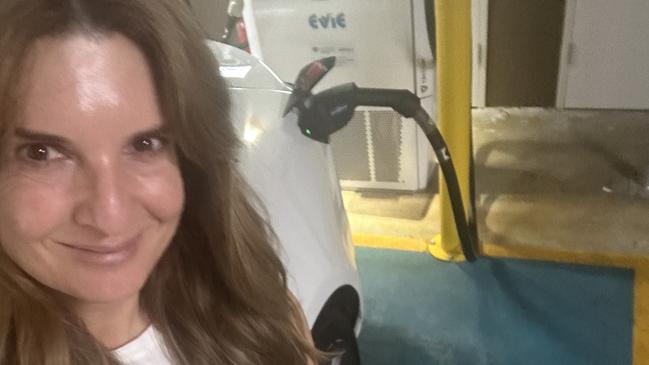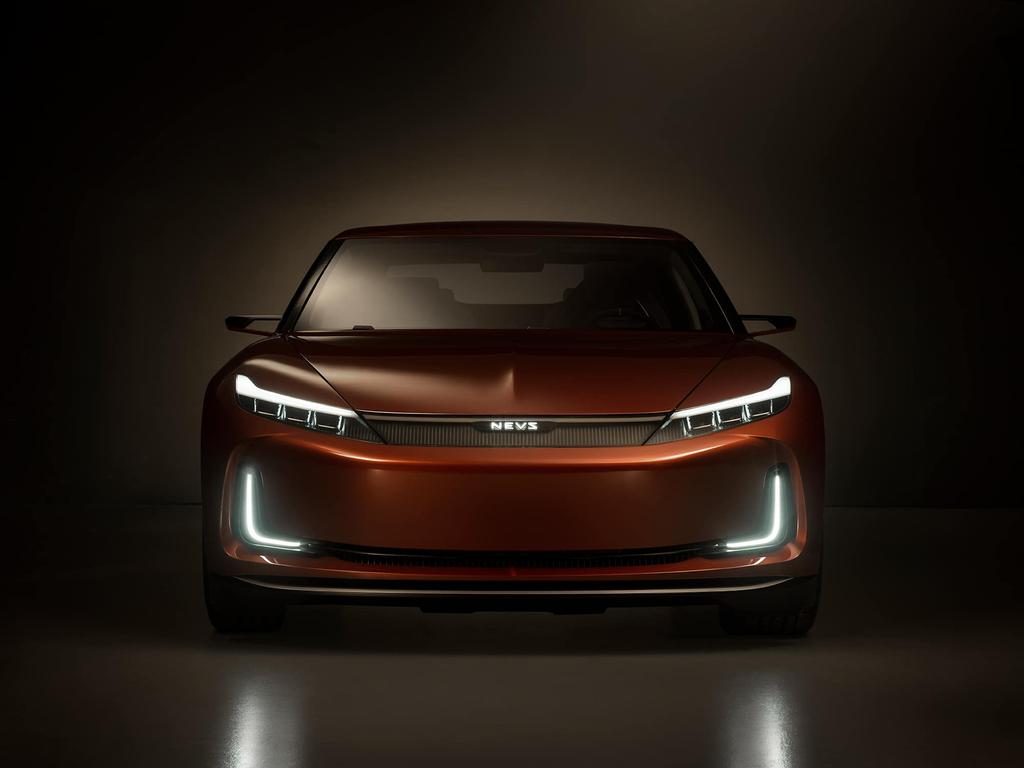EV, go home – why I pulled the plug on my Tesla
Gone are the days of being gaslit by an iPad on wheels that didn’t like the cold and took absolute liberty with the concept of fast charging. I’m finally free.

It’s not me, it’s you. Standing there, I whispered those words quietly under my breath as I shut the door and turned away, leaving the past behind me. Eighteen months together, the last six the most difficult if I was honest. What to do, though? When it’s not working, it’s not working and sometimes you’ve just got to call it. Just must accept when the music is over and move on.
So I did. I got rid of my Tesla. Gone are the days of charging anxiety. Being gaslit by an iPad on wheels that didn’t like the cold (it would lose charge when the temperature dropped) and took absolute liberty with the concept of fast charging.
Like I said, it wasn’t me, it was him. It. The car. The EV. The purveyor of emerald-coloured dreams that turned into a logistical nightmare and ultimately led me to re-embrace the world of sweet fossil fuel and its glorious reliability. Freedom, such sweet freedom.
For those of you joining this conversation for the first time, a quick recap. I have been, since early 2023, Australia’s least enthusiastic EV owner. I went down that road as a wide-eyed sweet child of summer. Literally. I picked up the car in February last year and initially was enamoured. It’s fast. Goes like a shower of the proverbial. Too clever by half. Seriously impressive.
And when the enthusiastic salesman said that, like me, he didn’t have the capacity to charge his car at home but reassured me it was no big deal, I ran head first into the mist.
He also said he’d driven his EV all the way from Sydney to Perth, blithely saying it just needed a little “planning ahead”. Who was I to argue? It was like he was straight from central casting, sent to lure me with honey-coated words about convenience and reliability and tax breaks.
I didn’t just drink the Kool-Aid. I bathed in it. Gargled it. Mainlined it into my veins. But it wasn’t long before I got mugged by reality; my traumatic search for a working charging station in the NSW Southern Highlands last May still haunts me. That was a brutal awakening. The relief I felt on that Saturday morning a few weeks back, charging my car in a shopping centre carpark for the last time? Palpable.
Some of you will be muttering various things right now. Shun the unbeliever, perhaps.
And yes, I am taking the proverbial out of myself in a spectacular way here, but there are so many truths to unpack from my experience in the past 18 months and I know I am no Lone Ranger here. I know it because many of you have written to me, many I’ve spoken to, and because of car dealers who will quietly tell you the same thing.
Electric vehicles are not the answer. They may be one answer, for one cohort of people.
But they’re not THE answer, the global (in a metaphorical sense) answer, and they are not the automotive messiah many zealots would have you believe, that government policy would have you believe.
They are not the answer to every question. Dissecting this very thing a few months back with some Canberra-based friends of the political persuasion, I observed that EVs were the perfect car for people who had mainly an inner-city, urban-based existence who didn’t go into the country much and who had the luxury of being able to charge their cars at home. All the ducks needed to line up for it to work.
My friend responded dryly – who do you think is designing government policy in this space?
I’m happy to hold my own experience up for ridicule and mockery. It’s a small price to pay, unlike the price of an EV, and unlike the cost benefit of running one.
When I ended my relationship with my Tesla, I did one final check of my car stats to find out how much I had saved in fuel costs across the past 12 months. A grand total of 524 bucks, so $42 a month.
Apart from the fact these days that will buy me a pack of loo paper and a bag of Doritos, if you offset that against the cost of my time spent sitting in carparks waiting for it to charge? Let me promise you, it’s a net negative. A significant one.
This country has enough productivity issues without creating more by trying to force every single person to live the socialist utopian dream.
The thing that bothers me the most, I think, is the lack of honesty around the whole conversation when it comes to renewables. And before you say anything, I’m not against them. If you’re bored enough, you can go look at everything I’ve said or written in this space, and it is simple.
Renewables are part of the energy mix. One part. Like fossil fuels. Like nuclear must eventually be. There is an important place for renewables in some aspects of transport, in powering homes. My late dad and mum have had solar panels on their roof since forever and it makes perfect sense. Every new piece of residential built form should have solar panels on the roof feeding into local energy grids.
But it makes no sense that the biggest threat to koala habitat in NSW is from destruction of native forest by, wait for it, renewable projects. Clearing farmland to scar the countryside with solar and wind farms that render the landscape a shocking eyesore is not green energy and saying it is doesn’t change that. You will never convince me that clearing native terrain and destroying fauna habitat is green energy. It is not.
If this isn’t enough for you, please enjoy some more facts at your leisure.
EVs are the most expensive out of the spectrum of car options on a whole, life-of-asset basis. It’s a cost that most Australians can’t afford and most won’t want to.
A hybrid, though, needs only about 25 per cent of the battery metals of a full EV. Hybrids offer roughly 20 per cent emissions saving over internal combustion engine vehicles, with a fraction of the supporting infrastructure required for full electric vehicles, and without the range anxiety. Anyone wonder why the car of choice by Australia’s cabbies is a hybrid Toyota Camry?
Again, we need a mix of energy sources, and we are heading down a dangerous road because of policy that ignores pragmatic realities, environmental truths and financial impost. If it were just about reducing emissions, we’d be racing down the road to nuclear. Oh, but it’s going to take too long, they say. That’s just a nonsense argument. It’s like saying, oh a cure for cancer will take too long to reach so best we don’t keep going.
There are many people in my life with EVs who love them, for whom EVs work and meet their needs and circumstances. Fantastic. But they are not for everyone.
If we’re honest, the mad, singular push towards EVs is consistent with the all-or-nothing approach adopted by industry lobby groups, and carried, seemingly without being tested at all by energy-illiterate ministers who prefer ideology above all else. Again, if an EV works for you? Fantastic. You’ll find me at the servo, pumping gas and singing a merry tune along the way.







To join the conversation, please log in. Don't have an account? Register
Join the conversation, you are commenting as Logout